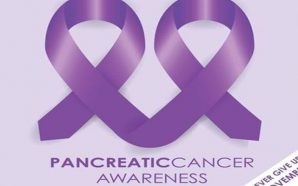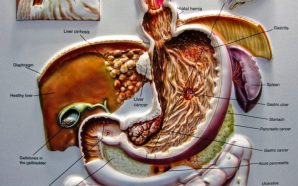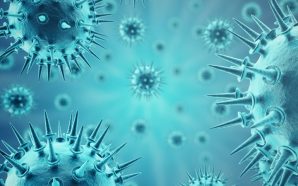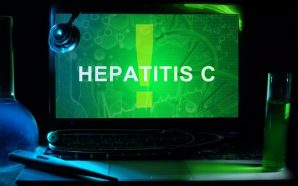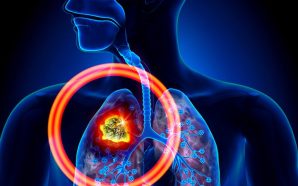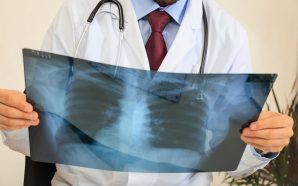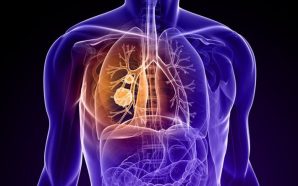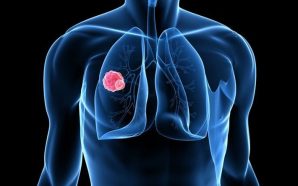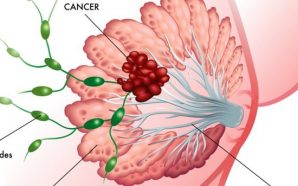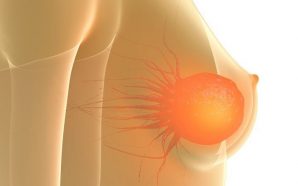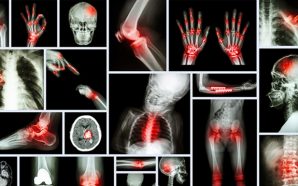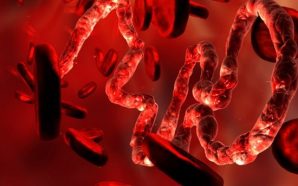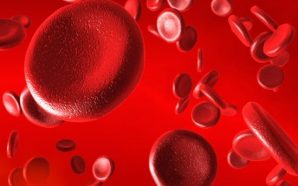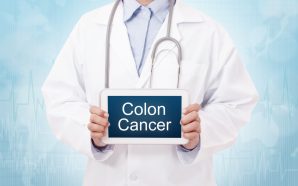-
For proper functioning, your body requires lipids, also known as cholesterol which is produced by the liver or contained in some foods. Cholesterol on its own doesn’t cause any health symptoms, though in excess it could cause complications like heart disease. To move around the body, cholesterol combines with proteins,...
-
It is still unknown exactly what causes most cases of pancreatic cancers. However, some risk factors have been linked to an increased chance of being diagnosed with the disease. Recent research has shown that some of these risk factors, such as smoking or heavy drinking, can affect the DNA...
-
When it comes to treating pancreatic cancer, there are three main options for those suffering from this disease. Depending on the advancement of the cancer, these treatments can be used individually or in conjunction with one another. Treatment options include: Surgery Radiation Therapy Chemotherapy Surgery Surgery is generally used for...
-
The pancreas is the organ that is responsible for delivering enzymes to the body that are essential for digesting food and metabolizing sugar. Cancer of the pancreas occurs when the tissues of the organ are overtaken by harmful tumors that inhibit the way the pancreas functions. Even when pancreatic...
-
The prominence and mortality rates of cancer victims have led to a desperate search for more effective means of dealing with this frightening variety of illnesses. Although any cancer can be fatal, many have been researched to the extent that they can be diagnosed quickly, leading to a more effective...
-
The pancreas is a six-inch-long organ located behind the lower part of your stomach. Its function is to secrete the hormones insulin and glucagon that help regulate sugar metabolism and enzymes that aid digestion. When the hormones are not working properly, diabetes is often the result. Pancreatic cancer occurs...
-
Dealing with cancer is difficult, but when the verdict is pancreatic cancer, the survival rate is only 25 percent for the first five years after the diagnosis. Like all other cancers, staging occurs from the beginning. The oncologist will base the stages upon various factors, such as if the...
-
Hepatitis C is a contagious virus that is transmitted through contact with infected blood. This virus affects the liver of an infected individual. Over time, hepatitis C can cause significant damage to the liver as well as lead to the development of cancer. Many people who are infected with...
-
Hepatitis C is an infection that causes inflammation of the liver. One of the main issues with Hepatitis C is that many times the individual does not even realize that they have the disease until the damage to the liver is irreversible. Hepatitis C is spread from person to...
-
Hepatitis C Information Hepatitis C is a liver disease that causes the organ to be inflamed. This inflammation is red swelling caused by injury or infection. This inflammation can cause organs to stop working properly. The liver is a very important organ. It has a lot of functions such...
-
An overview of Hepatitis C Hepatitis C is a disease that is caused by a virus in which affects your liver. Over time it can cause permanent liver damage, liver cancer, and even liver damage. Most people are unaware that they have hepatitis C until it has already caused...
-
Lung cancer is a type of disease that starts in the small tissue of the lung. In many cases, it begins by forming in cells that are lining a person’s air passages. Lung cancer comes in two different forms known as small and non-small cell. In order to diagnose...
-
Lung cancer is a cancer that begins in lungs. The lungs are located in the chest and are responsible for taking in oxygen and removing carbon dioxide. Unfortunately, when cancer grows in these organs, it is a very serious disease. In fact, lung cancer is the leading cause of...
-
Lung cancer causes more deaths worldwide than any other form of cancer. There are two main forms of the disease: small cell and non-small cell, and the vast majority of cases (85 to 90 percent) belong to the latter category. Small cell (or oat cell) tumors often originate in...
-
There are three vital things you should know about lung cancer: it is an equal opportunity “killer;” non-small cell lung cancer (NSCLC) is the most common type and grows and spreads more slowly than other affected cells; and recent findings show that lung cancer survival rates have improved. Therefore,...
-
Lung cancer is cancer that begins in the lungs. The lungs are located in the chest and are responsible for taking in oxygen and removing carbon dioxide. Unfortunately, when cancer grows in these organs, it is a very serious disease. In fact, lung cancer is the leading cause of...
-
Lung cancer is a type of disease that starts in the small tissue of the lung. In many cases, it begins by forming in cells that are lining a person’s air passages. Lung cancer comes in two different forms known as small and non-small cell. In order to diagnose...
-
Many people struggle with the problem of sensitive teeth. Sensitive teeth react to abrasive substances and hot or cold temperatures that normally do not bother the average person. You may also have trouble with certain brands of toothpaste, experiencing shooting pain from the tooth to the nerve whenever you...
-
The flu shot is a vaccination against the seasonal flu. It is delivered each fall to doctor’s offices and pharmacies. The vaccination actually comes in two forms, a shot, and a nasal spray. The traditional vaccine offers antibodies against three types of the influenza virus, two influenza A variations...
-
According to the CDC, there are two types of meningococcal vaccines available in the United States. The first is the meningococcal polysaccharide vaccine or Menomune. The second is the meningococcal conjugate vaccine, which is otherwise referred to as Menactra, Menveo, and MenHibrix. Both vaccines work to prevent four types of...
-
With the busy schedules and the active lives that most of us lead, online education has become a very popular way to earn a degree in health care professions. Many aspiring medical professionals find promising opportunities at the intersection of online classes and medical billing and coding, a career that...
-
Medical billing and coding specialists have to know many healthcare terms in order to do their jobs efficiently and quickly. The healthcare system can be confusing because of the complex terms that change all the time. Here are just some of the many healthcare terms that an aspiring medical...
-
A degree in medical billing and coding usually requires between 30 and 40 college courses, weighing in at a little more than 100 credit hours. With a diploma in hand, you can find a job and begin what will hopefully be a lifelong career. But before any of this...
-
Medical billing and coding specialists, also called health information techs, compile and process health records so patients receive correct reimbursement from insurance in a timely manner. The specialists typically rely on codes to ensure objectivity and accuracy when entering information into both electronic and paper systems. This info can...
-
Once you’ve completed your medical billing and coding education, you probably feel you’re all ready to find a job in that field and start this exciting and rewarding career. You may have some questions on how you should begin your job hunt Is there anything more you need to...
-
When visiting a hospital, patients come in contact with many different employees who contribute in different ways to the treatment and business aspect of patient care. Behind the scenes of bustling treatment centers are important professionals who hold the responsibility of coding medical procedures and assuring that insurance companies...
-
Meningitis is a disease that occurs when the meninges (coverings of the brain) become inflamed. The disease is caused by a bacterial or viral infection of the fluid surrounding the brain and the spinal cord. The disease causes symptoms such as intense pain, sensitivity to light, convulsions, fever, stiff neck,...
-
Meningococcal disease is caused by a bacteria strain known as Neisseria Meningitidis. This bacteria is one of the leading causes of bacterial meningitis in children between the ages of 2-18. You can protect your child by getting them the meningitis vaccine. There are two different meningococcal diseases: Meningitis: a...
-
Once a person is determined to have a malignant tumor or the diagnosis of breast cancer, the healthcare team will determine staging to communicate how far the disease has progressed. Determining the stage helps to determine the best way to contain and eliminate the breast cancer. Staging is based...
-
Cancer is the malignant growth of body cells. Breast cancer affects the mammary tissues and is ranked second killer form of cancer in women after lung cancer. Although it affects men it is not common and only a small number get affected. However, with the laid out measures to...
-
Breast cancer begins in different areas of the breast: the ducts, the lobules, or the tissues in between. Differing types of breast cancer depend upon where the cancer cells originate. Learn more about these different types of breast cancer below, including non-invasive, invasive, recurrent, and metastatic breast cancers: Ductal...
-
Many of the cancer treatment and therapies nowadays are strong and efficient in the battle against cancer. Long gone are the days when humans were powerless against cancer and its consequences. It is widespread knowledge that cancer is still difficult to cure. However, the advancements in treatment strategies today,...
-
Rheumatoid Arthritis is an autoimmune disease that causes swelling, redness, pain and discomfort that gets worse if left untreated. The inflammation that the disease causes can affect internal organs as well. Eyes, lungs and heart are some of which can be affected by it. Despite the condition being a...
-
Rheumatoid Arthritis is a chronic disorder resulting from an inflammation of the membranes or tissues that line the joints, typically in the hands and feet, that generally develops in an individual between the ages of forty and sixty. Over time, rheumatoid arthritis can destroy the cartilage, ligaments, tendons, and...
-
While the signs of rheumatoid arthritis can seem hidden and unnoticeable, they may be more visible than you might think. Although there are indeed rheumatoid arthritis signs that some people might not be able to pick up on, there are still plenty of other symptoms that you’ll be able to...
-
You’ll often hear older adults complaining about aching and soreness in their joints, even when doing tasks that don’t seem that strenuous. Medical experts estimate that nearly 50% of seniors get a diagnosis with a form of arthritis, making it a condition directly associated with aging. While it can...
-
Melanoma is cancer that begins in your melanocytes—the pigment-producing cells that give color to your skin. Although common, melanoma can be serious, more so than other types of skin cancer, because it may spread to other parts of your body. Here is a look at the main types of...
-
The most dangerous part of melanoma is its ability, in later stages, to spread (or metastasize) to different parts of the body. Metastatic melanoma, also known as Stage IV melanoma, is the stage where melanoma cells of any kind (mucosal, cutaneous, or visual) have spread through the lymph nodes...
-
The majority of cases of skin cancer essentially happen on parts of the body that are not exposed to direct sunlight. Besides, many deaths due to skin cancer are actually not more than ten thousand in the complete population of the U.S. To be more exact, there is a...
-
Melanoma is a type of skin cancer considered by medical professions to be the worst type. It develops deep in the cells that form skin pigment and is typically caused by overexposure to harmful UV rays such as those found in tanning beds or produced naturally by the sun. Skin...
-
Metastatic melanoma is a form of skin cancer. There are various types of skin cancer, but melanoma is the most severe. Melanoma can spread very fast to other parts of the body. Therefore, it is recommended to visit an oncologist detect and treat melanoma during its early stages. Most...
-
Deep vein thrombosis, commonly abbreviated “DVT,” is a condition that occurs when a blood clot forms in one or more of the deep veins in your body, usually in your legs. DVT is a serious condition because if a blood clot in your vein breaks loose, it can travel through...
-
Deep vein thrombosis (DVT) occurs when a clot forms in the deep veins, usually of the leg. You may notice swelling or pain in the calves, or there may be no symptoms at all. Although these may seem mild, DVT is a serious medical condition for which experts recommend immediate...
-
Deep vein thrombosis (DVT) occurs when a clot forms in the “deep veins” of the body, specifically the legs. DVT is serious, and the complications that ensue can be fatal. While there are quite a number of risk factors for developing DVT, there are also things you can do...
-
Deep vein thrombosis is a condition that occurs when a blood clot forms within one of the veins deep within your body, usually in the legs. The biggest danger of deep vein thrombosis is that the blood clot could break off and travel to your lungs, leading to pulmonary embolism,...
-
Basically, Deep Vein Thrombosis is a blood clot and the majority of sufferers develop them in their legs but they can also form in other parts of the body. If you have developed DVP there are a variety of symptoms to look out for – swelling of the affected...
-
Deep vein thrombosis is a condition that occurs when a blood clot forms in one or more of the deep veins in your body, usually in the legs. This condition sometimes develops when you don’t move for a long period of time, such as after surgery or an accident when you...
-
How is Colon Cancer Treated? Treatment for colon cancer depends upon the stage of the cancer when discovered. Initial screenings such as colonoscopies and sigmoidoscopies can detect pre-cancerous tumors in the colon. These tumors can be removed and tested for cancer. These preventative screenings are extremely important in preventing...
-
Colon cancer is the development of cancer in the colon, or large intestine. It generally begins as small, noncancerous lumps, known as adenomatous polyps, that are asymptomatic and can take some time to turn into full-blown cancerous cells. This is largely the reason yearly colon cancer screenings are recommended—the sooner...
-
Important Facts To Know About Colon Cancer The colon is considered as one of the most important parts of our digestive system. When the malignant tissue in Colon grows then the Colon Cancer is occurred. The digestive system is harmed by it very seriously. It is the most harmful...













